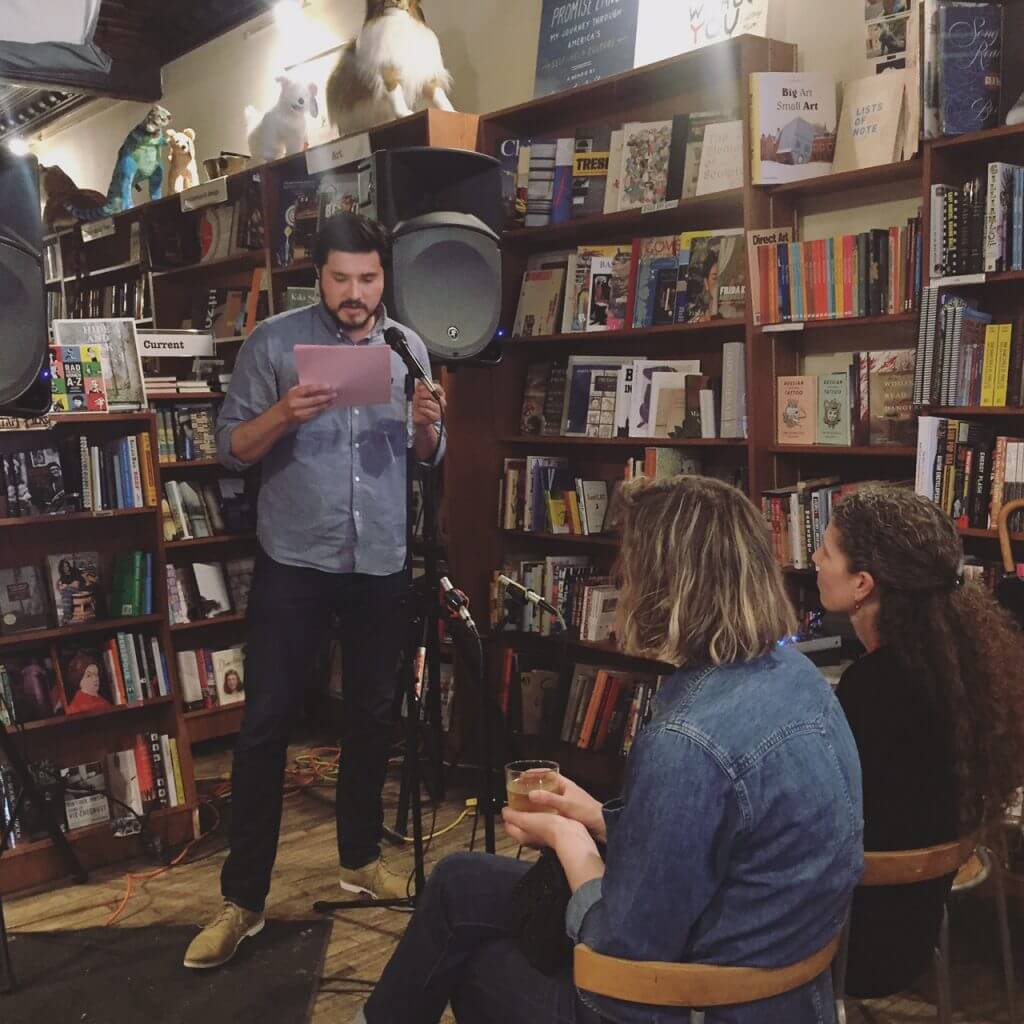Master the Art of Creative Writing
Through one-on-one mentorships with faculty thesis advisors, intimate writing seminars, and in-depth peer reviews, you will learn to think critically about your craft. Examining literary works, exploring genres, and establishing close relationships with professors will all contribute to your development as a writer and help you to discover your unique style and voice. Monmouth’s M.F.A. program is a rigorous course of study built on the foundation of the M.A. in English and teaches students to apply their skills in literary analysis to their own creative projects and professional careers.
Courses Offered
EN 607: Creative Non-Fiction Workshop (3 credits)
In a workshop setting, students will analyze readings in creative non-fiction to understand and become aware of the variant forms, techniques, and approaches used. As workshop participants, students will write and analyze their own creative nonfiction pieces. This course may be retaken for credit.
EN 609: Poetry Workshop (3 credits)
In this seminar, we will read and discuss contemporary poetry with an eye toward understanding and honing techniques in craft, and will generate and revise poems that demonstrate range and skill. Students will prepare and receive detailed feedback on the workshopped poems. In addition to producing and revising original work, students will write focused responses to some of the assigned readings and will demonstrate familiarity with the critical vocabulary and tools of poetry.
EN 611: Fiction Workshop (3 credits)
Students will analyze in a workshop setting their own short stories or novel chapters for intensive examination by workshop participants. Reading may be assigned. This course may be retaken for credit. Light reading may be assigned. This course may be retaken for credit.
EN 615: Craft Seminar: Poetry: Ekphrasis (3 credits)
In this seminar, we will study ekphrastic poetry and examine the art of writing poems inspired by art objects and art forms (including painting, sculpture, literature, architecture, music, dance, theater, photography and films). We will pay particular attention to how contemporary poets have pushed the boundaries of the ekphrastic “enterprise” (Gregory Pardlo), and how they reinvigorate the conversations between form and content. We will read individual poems as well as sequences and full length collections that sustain and expand the ekphrastic mode. This seminar will have a workshop component and will incorporate writing sessions, but the focus will be on savoring the rich possibilities within this (sub)genre and understanding its strategies and techniques with an eye toward employing them in our own work.
EN 650: Publishing Seminar (3 credits)
A seminar designed for students who are interested in pursuing professional experience in publishing, media, the teaching of creative writing, and other fields optimal for MFA graduates. Guest speakers will include authors, book and magazine editors, literary agents, nonprofit professionals, advertising copywriters, journalists, and scholars. Professional- training exercises may include query letter and resume workshops, writing story pitches, preparing publication submissions, drafting project proposals, discussing interview techniques, and conducting research into potential professional fields.
EN 652: Craft Intensive Seminar: Great Expectations (3 credits)
In novel writing, the first chapter is often thought of as the most important pages of a book. It is where disbelief is suspended and where the specific world of the fictional tale is built. It is in this space where “great expectations” are shaped for what is to come. Yet so much more is established in a successful beginning, too. By reading the first 20-30 pages of select novels “blind” (i.e. without knowing the author or title), we will study what makes a successful and compelling first chapter. And toward the end of the semester, we will vote on which novel or novels we will be reading in their entirety to see if they live up to our great expectations. Excerpts will encompass mostly contemporary fiction, across multiple genres. Some of the writers we may read include: Mary Gaitskill, Rivka Galchen, Patricia Highsmith, Chimamanda Ngozi Adichie, Ben Lerner, Tea Obreht, Toni Morrison, Don DeLillo, E.L. Doctorow, Zadie Smith, Katie Kitamura, Michel Houellebecq, Karl Ove Knaussgård, Joy Williams, Hari Kunzru, Haruki Murakami, Kazuo Ishiguro, among others.
EN 655A-B: Creative Thesis Seminar (6 credits)
Students will complete 80-200 pages or the equivalent of a book-length manuscript, consisting of previously written work that has been revised substantially along with new work. In addition, the student will craft a critical paper (10-15 pages) analyzing comparable texts that exemplify the literary tradition from which the thesis springs. The paper may discuss the influence of analyzed works on the thesis, but will focus on a discussion of the craft evident in the creative works discussed.

